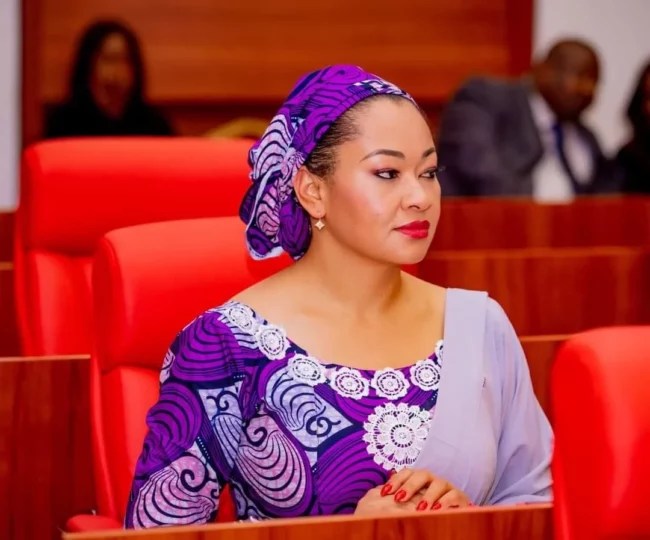
 ll
ll
President Bola Tinubu’s administration has done remarkably well in aviation. The Minister of Aviation, Festus Keyamo, has matched his words with action to improve the dwindling fortune of the sector, even though he still has a long way in totally turning it around, writes
It is two years since Bola Ahmed Tinubu assumed office as President. The administration before Tinubu’s handed over a sector in need of ur – gent surgical operations to tackle the rot of so many years.
The sector was faced with so many issue even though the last administration tried its best but few stakeholders are of the view that the growth recorded was relatively was slow. It did its best but it is open to analysts to score it or appraise its performance.
There were areas the last regime did well and there were areas that it did badly. Despite some achievements of the previous administration, the Tinubu’s administration inherited an aviation industry that was and still challenged.
Government they say is a continuum. The appointment of Festus Keyamo as Minister of Aviation and Aerospace Development in 2023 initially came with some apprehension because of the belief that the Delta state born senior lawyer was a little brash and would find it difficult to cope with the high level intrigues in the aviation sector that is littered with banana peels.
Keyamo has been able to weather the storm and initially found it tough to communicate five point agenda to an ever critical sector like the aviation industry with experts steeped in the nuances of the sector.
By the time he settled into the job, he was able to convince the naysayers of the direction of the President in tackling age-long issues of aviation.
President Tinubu has increasingly prioritised aviation infrastructure development and regional airline partnerships as strategic tools to drive national economic growth, improve connectivity, and strengthen regional integration.
It has carried out rehabilitation and expansion of terminals at major international airports including Abuja, Lagos, Port Harcourt, Kano, Enugu. These terminals are undergoing terminal expansion and modernisation.
Under the airport concession programme, the ongoing plan by the government on Public-Private Partnerships (PPPs) concession of key international airports is aimed at improving efficiency, infrastructure, and service delivery.
These five major airports to be concessioned are the Nnamdi Azikiwe International Airport, Abuja, the Murtala Muhammed International Airport, Lagos, the Aminu Kano International Airport, Kano, the Port Harcourt International Airport, Omagwa and the Akanu Ibiam International Airport, Enugu.
The concession of these aerodromes is not without its fair share of criticism as some stakeholders have voiced their concerns. They expressed the fear that concessioning these very viable airports would seriously affect the viability of other secondary airports slated for privatisation.
Defending the concession of the administration, Keyamo said that many of the country’s airports were presently running at a loss, adding that they have to be subsidised each month by the Federal Government.
The initiative to concession the airports started from previous administrations, as the former Minister of Aviation under the Buhari administration, Senator Hadi Sirika, promised Nigerians that these major airports would be concessioned until the last breath of that administration.
Concession of the airports is progressing as prospective concessionaires have indeed submitted various proposals, including different durations for the concession.
The Ministry of Aviation and Aerospace Development has not established any fixed duration. All submitted proposals are currently undergoing thorough evaluation that will eventually be reviewed by the ICRC before it is presented to the minister for conveyance to the Federal Executive Council (FEC) for approval.
Another area the government has made huge investment is in navigation and safety systems. The modernization of Air Navigation Services through the Nigerian Airspace Management Agency (NAMA) is also currently ongoing.
The government through the Managing Director of NAMA, Ahmed Umar Farouk is deploying satellite-based navigation systems (GNSS), upgrade of radar systems and communication infrastructure for better air traffic control and safety compliance.
Nigeria continues to support Yamoussoukro Decision, Single Africa Air Transport Market (SAATM) and other Multilateral Agreement.
As signatory to SAATM, it is committed to opening its skies to African airlines, aligning with continental goals of liberalized air transport.
Nigeria has signed BASA inline AFCAC YD-Compliant ASA with some of the thirty-eight (38) SAATM countries, including the provisions of unrestricted first to fifth freedom traffic rights on passengers and full liberalisation on cargo.
At the recently concluded 18 Banjul Accord Group (BAG) Plenary meeting in Abuja, the BAG Ministers reaffirmed their commitment to the ideals of the Banjul Accord Group and full implementation of Single African Air Transport Market (SAATM).
Nigeria has signed Memorandums of Understanding (MoU) with neighboring countries in the areas of Air Traffic Flow Management (ATFM) & Search and Rescue (SAR).
The Director-General of Nigerian Civil Aviation Authority (NCAA), Capt. Chris Najomo, told New Telegraph that Nigeria is actively promoting the growth of domestic airlines through targeted policies such as the “Fly Nigeria Act,” aimed to prioritize Nigerian airlines for government-sponsored air travel.
He said this was designed to support local operators, ensure their sustainability, and boost the local and regional aviation industry.
Nigeria, he further stated, had domesticated the Cape Town Convention (CTC) in the Civil Aviation Act 2022 and signed the Irrevocable De-registration and Export Request Authorisation (IDERA) in October 2024.
This, he noted, had increased Nigeria’s score on the CTC Compliance Index from 70.5% to 75.5%, placing the country in the ‘high category’ and the subsequent removal of Nigeria from the Aviation Working Group (AWG’s) watch-list of non-compliant countries.
The signing of IDERA has allowed Nigerian airlines to access leased aircraft more easily, thereby boosting operational capacity, international confidence that would support Nigerian airline expansion on the regional routes.
One of the agenda of the Minister is the development of human capacity within the industry. There is ongoing discussion of regional partnership on airlines and government support, due to the immense benefit that it would provide to the sub-region and Africa as a whole.
The appointment of Mrs. Olubunmi Kuku as the Managing Director of the Federal Airports Authority of Nigeria (FAAN) heralded a new direction for the infrastructural renewal of some of the nation’s major airports.
FAAN, within that period, also got re-certification of Nnamdi Azikiwe International Airport, Abuja, and Murtala Muhammed International Airport, Lagos, by the NCAA, marking a significant achievement in Nigeria’s aviation sector.
This milestone reflects the commitment of the Federal Government, regulatory bodies, and airport operators toward ensuring that Nigeria’s busiest airports comply with International Civil Aviation Organisation (ICAO) standards and enhance overall safety and security.
The pain of foreign airlines getting their trapped funds out of Nigeria was a huge embarrassment to the country. The funds got trapped long before President Tinubu assumed office.
At that time, over $800 million of foreign airlines revenue was trapped in Nigeria, which catapulted airfares for international travel and left frustration and despair in their wake.
Nigeria is no longer owing foreign airlines and the International Air Transport Association (IATA) is happy with the country, forcing foreign airlines to open fares lower inventory with huge route expansion by the airlines.
Speaking on behalf of Airline Operators of Nigeria (AON), the Vice Chairman of the association and the Chairman and CEO of Air Peace, Mr. Allen Onyema, commended the Minister of Aviation, the Director General of NCAA, Captain Chris Najomo, saying that Tinubu’s administration brought a lot of positive changes in the industry.
Please follow and like us:













